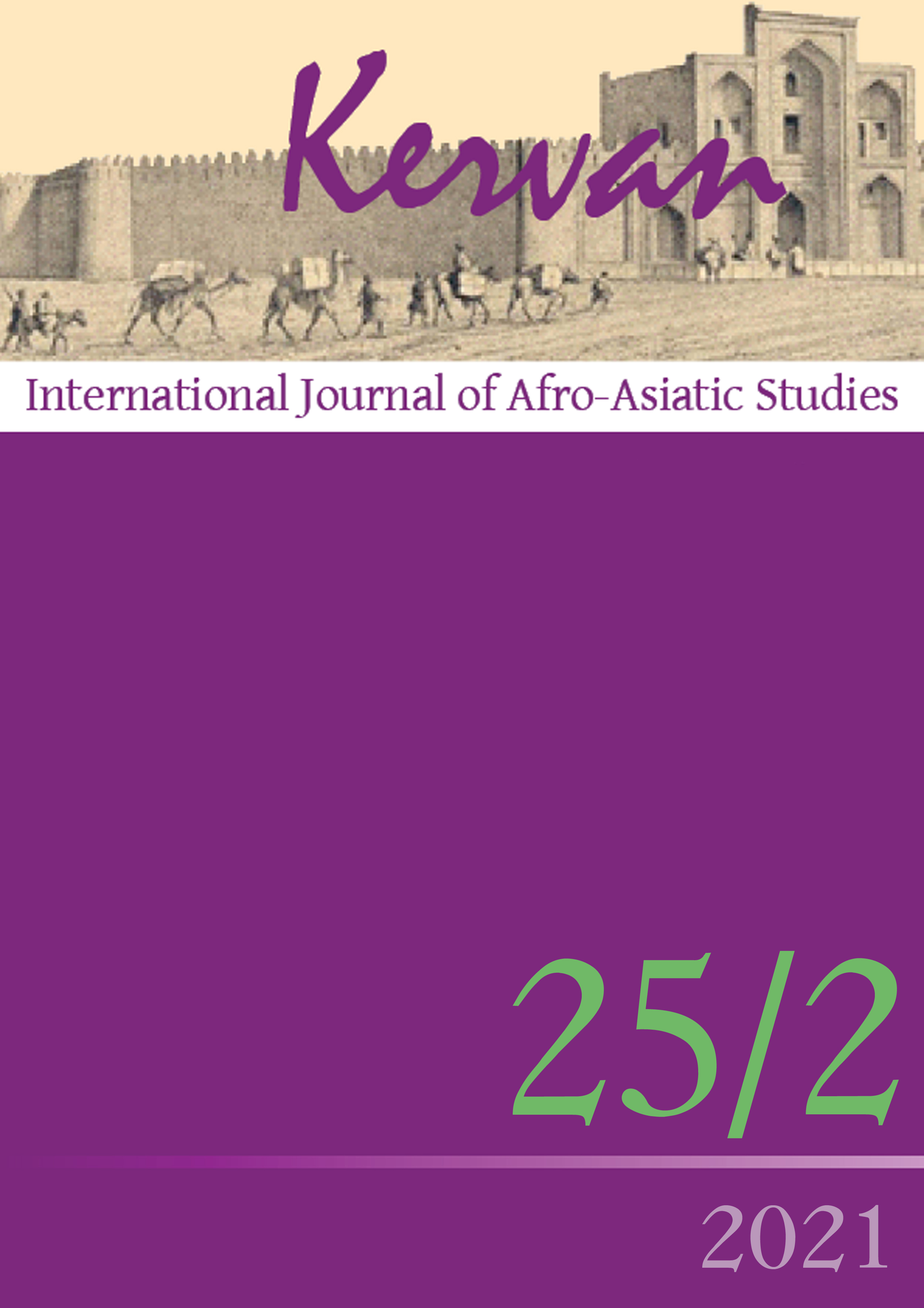T’ambaaro phonology
DOI:
https://doi.org/10.13135/1825-263X/6145Abstract
This article describes the phonology of T’ambaaro, a Highland East Cushitic language of the Afro-asiatic phylum spoken in southwest Ethiopia. The language has twenty-four consonant phonemes, and five oral vowels and one nasal vowel whose phonemic status is not safely established. The oral vowels are typical Cushitic vowels occurring short and long. In T’ambaaro, except the phonemes/h/ and /f/ which never occur geminate, the rest of the consonant phonemes appeargeminate, but that is only in word medial position. The palatal nasal and the voiceless, alveo-palatal affricate never occur as a single consonant, but only as a geminate consonant. Gemination and vowel length are phonemic in the language. Consonant cluster are allowed only in word medial position with a maximum of two consonants. Some consonants and vowels appear in free variation, but it is very difficult to formulate a systematic rule that captures the phenomenon. The phonology has phonological processes such as assimilation, epenthesis, deletion, and metathesis. T’ambaaro is not a tonal language, but seems a pitch accent language which is difficult to establish a rule for at this stage.
Downloads
Downloads
Published
Issue
Section
License
Gli autori che pubblicano su Kervan accettano le seguenti condizioni:
- Gli autori mantengono i diritti sulla loro opera e cedono alla rivista il diritto di prima pubblicazione dell'opera, contemporaneamente licenziata sotto una Licenza Creative Commons - Attribuzione che permette ad altri di condividere l'opera indicando la paternità intellettuale e la prima pubblicazione su questa rivista.
- Gli autori possono aderire ad altri accordi di licenza non esclusiva per la distribuzione della versione dell'opera pubblicata (es. depositarla in un archivio istituzionale o pubblicarla in una monografia), a patto di indicare che la prima pubblicazione è avvenuta su questa rivista.


 The articles that have appeared on Kervan since 2016 are rated as Class A in the system of National Scientific Qualification (ASN, disciplines 10/N1 and 10/N3).
The articles that have appeared on Kervan since 2016 are rated as Class A in the system of National Scientific Qualification (ASN, disciplines 10/N1 and 10/N3). The journal has been approved for inclusion in DOAJ. The DOAJ listing of the journal is available at
The journal has been approved for inclusion in DOAJ. The DOAJ listing of the journal is available at  The journal has been approved for inclusion in ERIH PLUS. The ERIH PLUS listing of the journal is available at
The journal has been approved for inclusion in ERIH PLUS. The ERIH PLUS listing of the journal is available at  Kervan was just accepted for indexing in SCOPUS. This important milestone ensures that articles published in Kervan are easily found when searching for library, archives and Information science and it enables Kervan authors to keep track of how often their article has been cited by others.
Kervan was just accepted for indexing in SCOPUS. This important milestone ensures that articles published in Kervan are easily found when searching for library, archives and Information science and it enables Kervan authors to keep track of how often their article has been cited by others.

